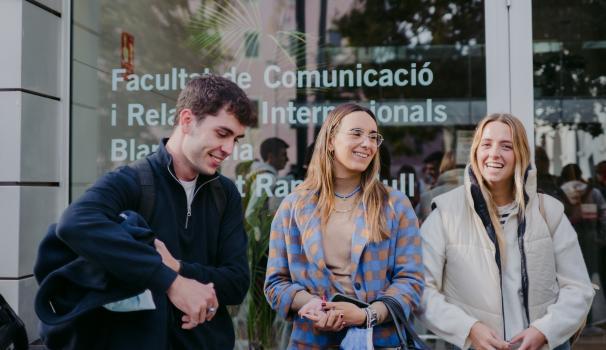Marketing
To give our brand a differentiated personality to stand out from the competition.
Enrolment open
Blanquerna-URL - Plaça Joan Coromines. 08001 Barcelona
School of Communication and International Relations
Those who have a passion for persuasive communication, brand and company communication, and marketing, with special emphasis on audio-visual and technological aspects.
Audio-visual communication has strong social and business roots and is playing an increasingly significant role in our society. This double degree offers numerous professional and creative opportunities in an expanding sector with a great future.
The School has been training professionals in persuasive communication for upwards of twenty years, with a preparation geared towards the profiles most in demand in the sector. The triple training in advertising, public relations and marketing that our students receive is in sync with other prestigious universities in Europe and the United States. The complementary nature of the course in audio-visual communication enables us to offer distinctive top-level training.
The main areas studied are:
To give our brand a differentiated personality to stand out from the competition.
To give persuasive information about the brand.
To improve the brand's reputation among its audiences.
To create all kinds of audio-visual products. You will learn how to implement an idea to make it succeed, starting with planning and going on to filming and post-production.
To prepare everything involved in creating the audio-visual product to make it a success. Learn how and where to look for funding, hire technical and artistic staff, to organize a shoot, and distribute and publicize your audio-visual product nationally and internationally.
How to create dialogues, scenes, and sequences in the audio-visual product. To master production mechanisms with the tools you need to transform your ideas into a full script.
A guaranteed future career.
Advertising, Public Relations and Marketing
The subjects of the Bachelor Degree in Advertising, Public Relations and Marketing provide students with skills and knowledge in all three disciplines. They thus provide a versatile profile that allows students to develop successful careers in the professional sector.
Audio-visual communication
In a rapidly changing professional field where knowledge is constantly developing, the bachelor degree in Audio-visual Communication teaches you to respond to the demands of the sector.
The student will learn about the specialized areas of each of the degrees:
The Blanquerna methodology is based on seminars, a core element in achieving personalized and qualitative learning and holistic training that includes not only academic and professional competencies but also personal and human skills.
With a focus on subjects with a theoretical component, master classes are taught by professionals and experts in a particular field, who offer guidance and support to their tutees in their particular disciplines, and build an ongoing academic and personal development relationship.
Seminar tutors work 6 hours a week with a maximum of 12 students. This establishes a relationship of trust between tutor and tutee and allows the monitoring of each tutees' progress. These sessions also help students to see the connections between what they are studying and their future professional careers.
We have agreements with leading multinational companies in the country, as well as private companies, and internal and external communication, business, marketing and public relations departments. The School has an agreement with more than 1,200 companies.
Studying abroad is a life-changing experience. We offer you the opportunity to take part in various exchange programs and internships abroad, as well as to participate in a variety of international cooperation programs.
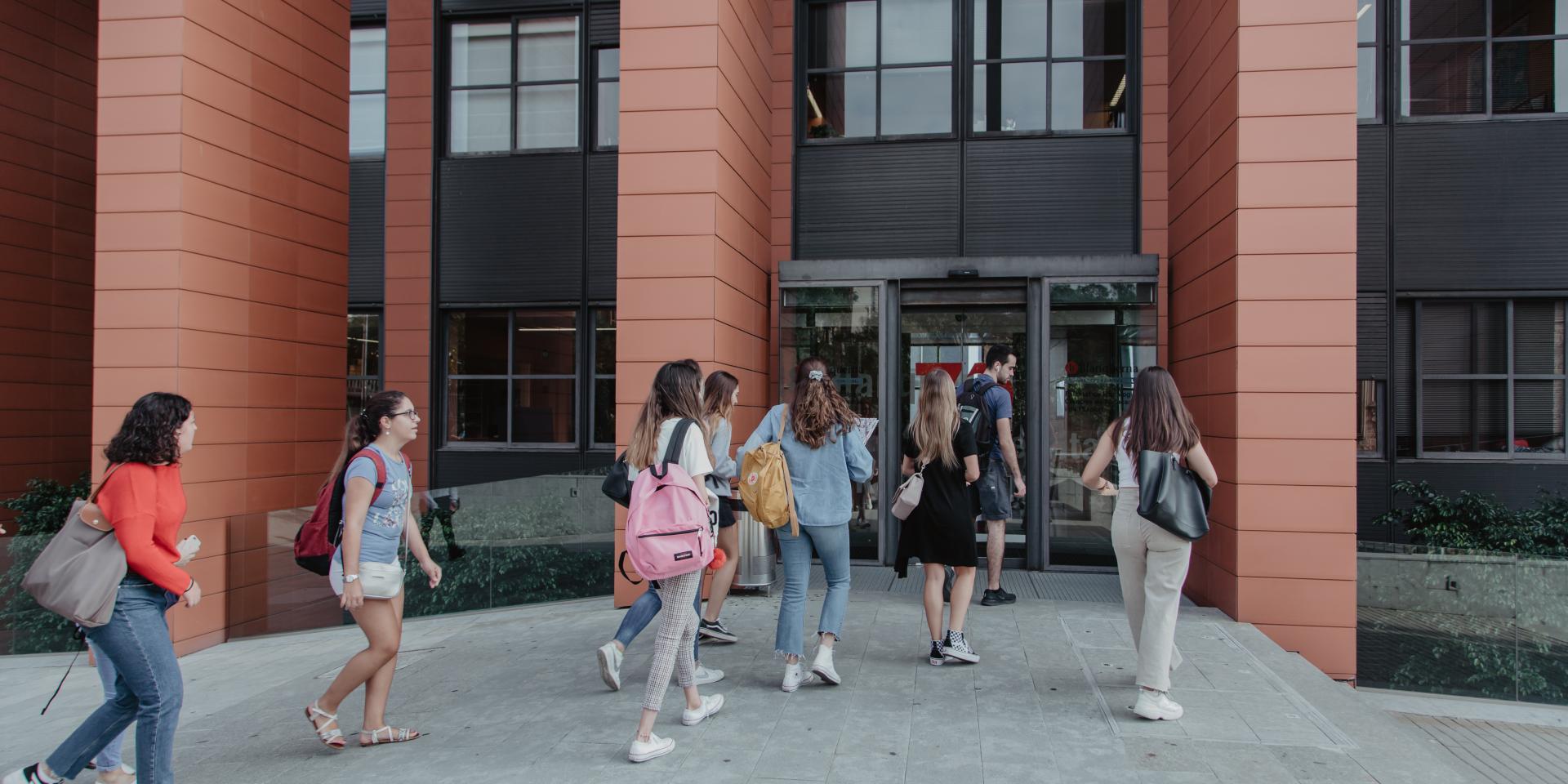
Study for two majors simultaneously, consecutively or following a track tailored to you
News
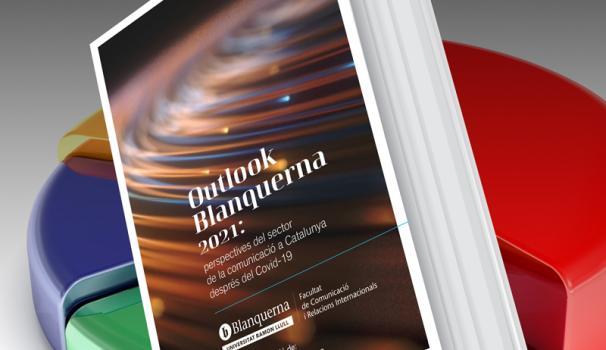
May 28, 2021
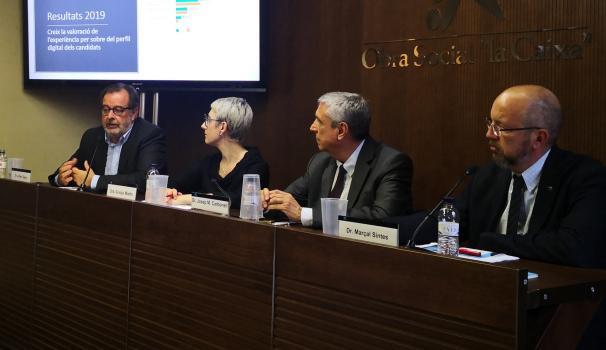
April 11, 2019

June 11, 2018
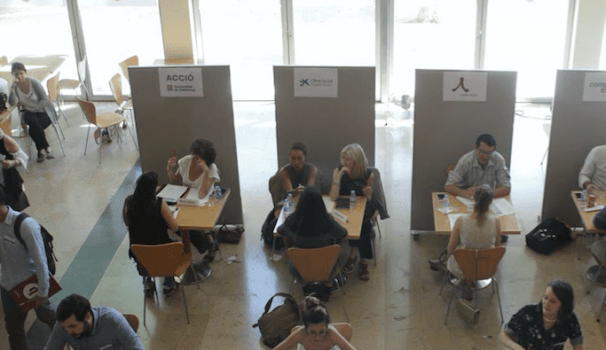
June 26, 2017

Blanquerna is a university with an international vision. Every year, we welcome students from all over the world wishing to study a full bachelor degree at our center. You could be among them.
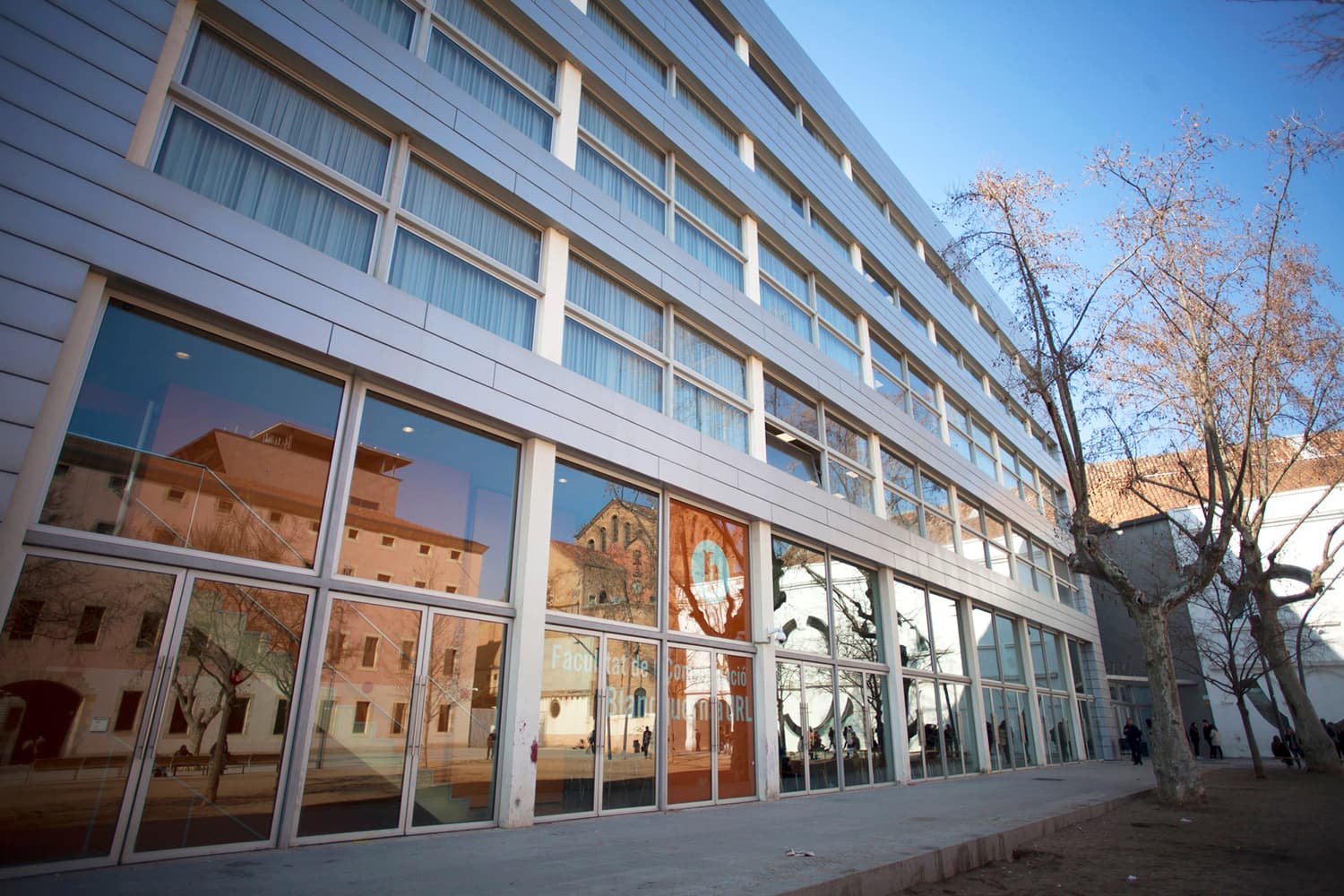
The curriculum for the Double Degree in Audio-visual Communications and Advertising, Public Relations and Marketing includes basic, compulsory and elective courses, internships, and a thesis, taught over 10 semesters (5 years) from September to May. Within this curriculum, you will be able to choose different specialization tracks according to the type of professional profile you want to develop. You can see it in detail below:
| Subject | Credits | Academic type | |
| First semester | |||
| Theory of Communication and Information | 6 | Core curriculum | |
| General Sociology | 3 | Core curriculum | |
| History of Contemporary Thought | 6 | Core curriculum | |
| Language I. Catalan Language | 3 | Core curriculum | |
| Language II. Spanish Language | 3 | Core curriculum | |
| Seminar I. Introduction to Communication | 8 | Core curriculum | |
| English 1 | 3 | Compulsory | |
| Second semester | |||
| Language and Techniques in Image and Sound | 3 | Compulsory | |
| Information Management | 4 | Compulsory | |
| Sociology of Communication | 3 | Core curriculum | |
| Aesthetics | 4 | Compulsory | |
| Language III. Text Types | 3 | Core curriculum | |
| Seminar 2. Narration | 8 | Core curriculum | |
| English 2 | 3 | Compulsory |
| Subject | Credits | Academic type | |
| Third semester | |||
| Introduction to Advertising, PR and Marketing | 6 | Core curriculum | |
| Introduction to Journalism and Corporate Communication | 6 | Core curriculum | |
| Introduction to Audiovisual Communication | 6 | Core curriculum | |
| Seminar III. Professional Communication | 8 | Compulsory | |
| Contemporary Political and Social History | 3 | Compulsory | |
| English 3 | 3 | Compulsory | |
| Fourth semester | |||
| Fundamentals in Marketing | 3 | Compulsory | |
| Seminar IV. Introduction to Advertising, PR and Marketing | 8 | Compulsory | |
| Audiences and Markets | 3 | Compulsory | |
| Basic Principles in Design | 4 | Compulsory | |
| 3 | Compulsory | ||
| Narrative of Audiovisual Genres | 3 | Compulsory | |
| History of Cinema | 4 | Compulsory | |
| New Media | 3 | Compulsory | |
| Introduction to Economy | 4 | Compulsory | |
| English 4 | 3 | Compulsory |
| Subject | Credits | Academic type | |
| Fifth semester | |||
| Communication Law | 4 | Compulsory | |
| Art Direction | 3 | Optional | |
| Techniques in Media Planning | 3 | Compulsory | |
| Theory and Techniques in Public Relations | 3 | Compulsory | |
| Conceptualisation in Advertising and Public Relations | 3 | Compulsory | |
| English V | 3 | Compulsory | |
| Strategic Planning in Advertising and PR: the Planner | 3 | Compulsory | |
| Seminar V: Strategies in Communication I | 8 | Compulsory | |
| Sixth semester | |||
| Development of Audiovisual Projects | 3 | Compulsory | |
| TV Editing | 3 | Optional | |
| Development of Projects | 4 | Compulsory | |
| Strategic and Operational Marketing | 3 | Compulsory | |
| External Internships | 12 | Practicum | |
| Seminar VI: Strategies in Communication II | 8 | Compulsory |
| Subject | Credits | Academic type | |
| Seventh semester | |||
| English VI | 3 | Compulsory | |
| Final Degree Project I | 6 | Final degree project | |
| Seminar VII: Agency-Advertiser Role I | 8 | Compulsory | |
| Audiovisual Production | 3 | Optional | |
| Fundamentals of Script Writing | 3 | Compulsory | |
| Cinematographic direction | 4 | Compulsory | |
| Seminar V: Specialisation in Audiovisual I | 8 | Compulsory | |
| Eighth semester | |||
| Applied Script | 3 | Compulsory | |
| External Interships | 12 | Practicum | |
| Seminar VI: Specialisation in Audiovisual II | 8 | Compulsory | |
| Strategy and Planning in Media | 3 | Compulsory | |
| International Marketing | 4 | Compulsory | |
| Final Degree Project II | 6 | Final degree project | |
| Seminar VIII: Agency-Advertiser Role II | 8 | Compulsory |
Course fees are paid in installments without any interest. At the time of enrollment, 50% of the total cost of the credits for which the student is enrolled must be paid*; the remaining 50% is split into nine monthly installments (from October to June) payable by direct debit.
The tuition fee / credit of degrees is regularized each academic year for all courses.
The double degree has a broad career path, with a very diverse range of job opportunities.
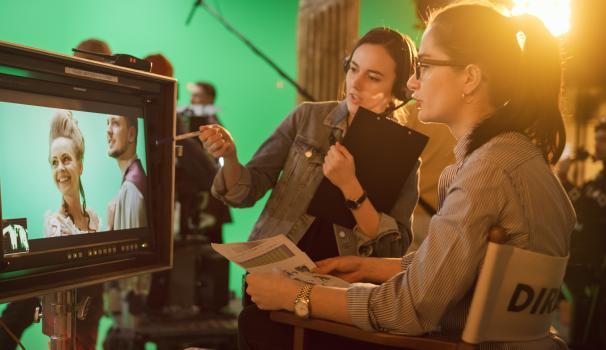
To develop the creative and technical processes used to construct audio-visual fictional and documentary narrative with a distinctive approach.

To apply narrative and aesthetic construction tools to create projects, the first step in the conception of all audio-visual formats, both fiction and non-fiction.

To undertake and coordinate audio-visual projects in different formats, managing talent, funding, and equipment in order to execute them according to the profile and demands of the audio-visual sector.

To develop the creative and technical processes used in scenography and create the visual identity of audio-visual content.
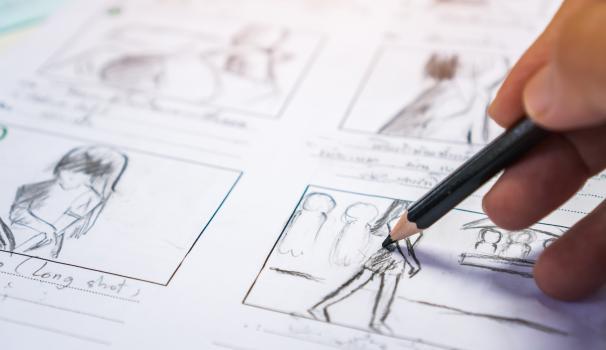
To develop creative and technical processes (camera work and lighting) for the images used in audio-visuals.

To develop creative and technical processes for sound recording and post-production.
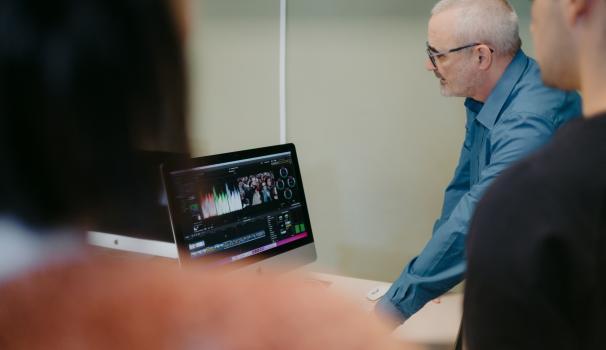
To develop the creative and technical processes used to introduce structure and rhythm in fiction and non-fiction.
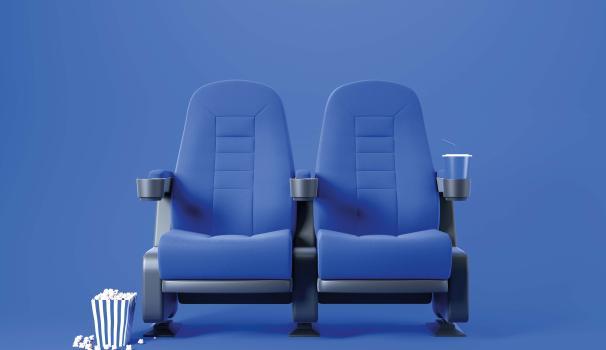
To develop creative and technical processes to construct audio-visual narrative in TV fiction.
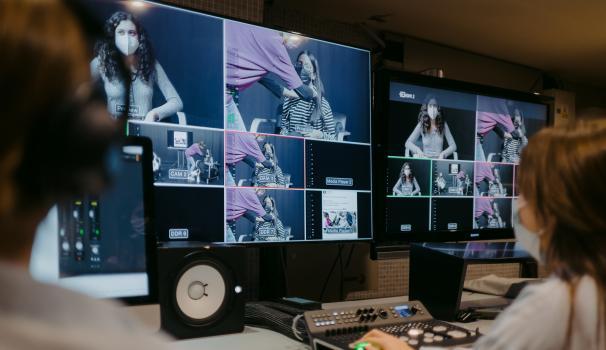
To develop creative and technical processes to construct audio-visual narrative in TV entertainment.
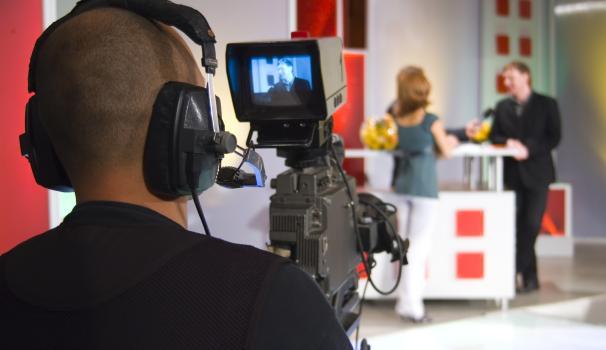
To develop creative and technical processes for directing audio-visuals linked to the world of advertising.

To develop creative and technical processes for directing audio-visuals intended to promote the music sector.

To develop creative and technical processes for directing audio-visuals linked to the world of fashion.
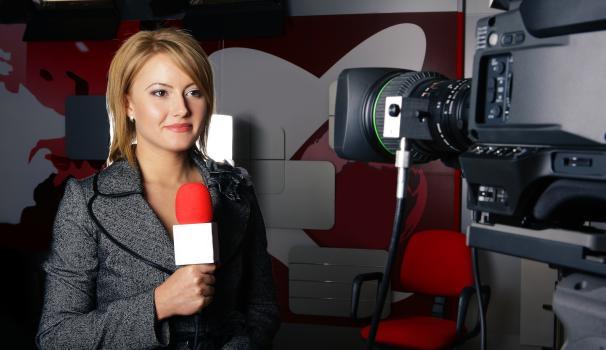
To host and present news and entertainment programs on television.

Managing relations with advertisers, coordinating the internal tasks of the agency to provide a service to the customer.

Creation of the idea, the concept, and its application from the written (copy) or visual (art) viewpoint.

Creating, adapting or renewing a brand's personality through its positioning, purpose or values.

Delivering the advertiser's message to various audiences, by purchasing advertising space in conventional or digital media.
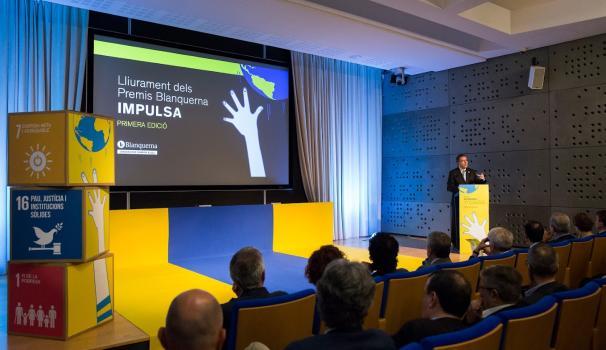
Designing, planning or producing conventions, congresses, festivals or other types of events.

Product definition, communication and sales in a company's marketing department.

Applying tools and techniques to the digital environment, especially focusing on new forms of digital communication.

Creation of content by the brand, outside the usual advertising formats.

Product and corporate branding in a company's marketing department.

Providing content related to the brand, via videos, texts or posters, depending on the network.

Managing the relationship between companies and the media, taking care of the brand's reputation.

As part of a company's corporate communication.
Judith Colell Pallarès
Josep Maria Picola Meix
Joan Bosch Garcia
Carlos Bría Lahoz
Aleksandra Krtolica Lukic
Marc Rosado Salvador
Eduard Vidal Portés
Cristian Marc Alegre Antón
Ester Almenar Taya
Lluís Anyó Sayol
Sue Aran Ramspott
Montserrat Arbós Figueras
Sonia Ballano Macías
Andrea Ballesteros i Beato
Hugo Jordi Ballón Marco-Bach
Sandra Balsells Cubells
Pilar Baradat Marí
Serena Rachel Barkham
Jaume Benet Busquets
Alain G.F. Blomart
Ignasi Boada Sanmartín
Jordi Botey López
Josep Maria Brugues del Moral
Jordi Busquet Duran
Maria Elisabet Cabeza Gutes
Quim Calvo Vergés
Judith Calzada Duaigües
Francesc Canosa Farran
Juan Pablo Capilla Garcia
Joan Joaquim Carreras Goicoechea
Xavier Casals Meseguer
Jordi Collell López
Marc Compte Pujol
Juan Cuenca Fontbona
Joaquim Cuixart Valero
Andrea Daza Tapia
Fernando de Felipe Allué
Sonia de Jaime Rodríguez
Rafael De Ribot Torrella
Núria Escalona Nicolas
Daniel Esparza Olivero
Roger Esteban Mondaray
Clàudia Esteruelas Sardó
Glynn James Euston
Mayka Fernández López
Joan Francesc Fondevila Gascón
Ramon Maria Fondevila Guinart
Josep Galindo Solé
Salvador Garcia Arnillas
Uri Garcia Medalla
Jordi Garcia Soler
Oriol Gispert Lafuente
Iván Gómez García
Francesc Grané Terradas
Marta Grau Rafel
Jonathan Green
Joan Antoni Hernandez Blade
Diane Hoyle
Ricardo Iscar Álvarez
Oriol Izquierdo Llopis
Juan Ramón La Parra Martínez
Carlos Lamelo Valera
Maria Teresa Luis Compte
Juan Ignacio Marcet Gisbert
Marta Marín Anglada
Oriol Massegú Blanch
Judit Mata Monforte
Alfonso Medina Cambrón
Mònica Mestanza Garcia
Ramon Millà Bruch
Esteve Miralles Torner
Carlos Monte Salvador
David Morales Amorós
Gemma Morató Sendra
Bartolomé José Moya Olives
Jacint Niqui Espinosa
Anna Maria Nogué Regàs
Núria Olivé Bellés
Tracey Owen
Lluís Pastor Pérez
Susana Pérez Soler
Jaume Peris Llimona
Ronald Wayne Pfeil Stackpoole
Marta Piñol Querol
Patricia Plaja Pérez
Marcos Polo López
James William Pownall Graumann
Jaume Radigales Babí
Alba Ramírez Pagès
Carles Riera Fonts
Marc Roig Badia
Jordi Roigé Solé
Josep A. Rom Rodríguez
Ivan Rosquellas Carrion
Alba Sabaté Gauxachs
Joan Sabaté Salazar
Ferran Sáez Mateu
Sílvia Sáez Sánchez
Josep Sala Colom
Aníbal Salazar Anglada
Jordi Sànchez Torrents
Josep Vicent Sanchis Llàcer
Eva Santana López
David Serrano Blanquer
Antonio Solanilla Ruiz
Carla Subirana Jiménez
David Tetilla Llaó
Joan Tharrats Pascual
Francesc Torralba Roselló
Xavier Vega Esquerra
Francesc Jesús Viadel Girbés
Sandra Vilajoana Alejandre
Francesc Vilallonga Montaña
Elisa Vivas Soto
Jennifer Weiss
Ursula Frances Wolf
Enric Xicoy Comas
Elena Yeste Piquer
Klaus Zilles
The application process for a place in the 2026-2027 academic year begins on October 29, 2025, and consists of three phases:
The application for a place can be made online or in person and entitles the applicant to participate in the admission process.
It can be done via the Application for admission button on the page for each degree, or directly from here, and requires:
It can be done at the School itself, by going to the Student Information and Guidance Service (SIOE), and the following must be submitted:
Approximately within two working days after the place application, the student will be informed by email about their admission. If admitted, the same message will invite them to formalize enrollment, including instructions on when and how to complete the procedure.
The criterion used to call admitted students to formalize enrollment will be the order of payment of the place application. For degrees with more than one shift, note that a shift may fill up during the enrollment period. The place will be definitive once the student has submitted the documentation with the final university entrance information and the first enrollment payment has been made.
For degrees taught in English, students must demonstrate a minimum B2 level of English to be admitted. The level can be accredited through the level test that all degree students must take before starting their program. To prove the minimum level, an official language certificate of B2 or higher can also be submitted: IELTS (6-7), TOEFL (IBT 90-110), CAMBRIDGE, or Official Language Schools, obtained within the last two years. Certificates from other organizations will not be accepted. The certificate does not exempt students from taking the level test to determine the English level for the first year.
It is the student's responsibility to have a level equivalent to B2 in the language of instruction of the degree to properly follow classes
The student called to enroll may choose between two options, depending on whether they already have the definitive entrance pathway or not.
Enrollment in the degree can be formalized before passing the PAU (University Entrance Exams) or CFGS or having the entrance pathway. Enrollment will be conditional on the presentation of the corresponding admission pathway. This option secures the place and allows choosing the shift, in the case of degrees with more than one shift, while places are available.
If the student does not obtain the entrance pathway, the enrollment fee will be refunded, but they will lose the place, preference in shift selection, and the amount paid for the place application (€50). If places remain available in July, they may choose to stay on the waiting list until September, and the money will be held, but they will no longer have preference for shift selection. If they do not obtain the entrance pathway by September, the enrollment fee paid will be refunded.
It will be formalized if, at the time of processing the enrollment, the student already has the university entrance pathway. They may opt for the available places and shifts.
IMPORTANT: Degrees with more than one shift may exhaust places in a specific schedule with conditional enrollment. The required documentation must be uploaded via the Document Repository.
The place will be definitive once the student has submitted the documentation with the final university entrance information and the first enrollment payment has been made.
NOTE: Students in the Communication Degrees must take an English level test that will not be exclusionary for admission but will determine the level at which they start the first year. Each student will be informed of the test date and time by email.
Studies can be paid upfront and/or in interest-free installments. If payment by installment is selected, upon enrollment the student will have two business days to pay 50% of the total cost of the enrolled credits, using their chosen form of payment; this payment will not be taken by direct debit. The remaining 50% will be divided into nine monthly payments from October to June via bank direct debit from the account provided at the time of enrollment. Prices for each academic year are updated annually.
Once payment is made, the corresponding receipt of enrollment can be viewed in the student's Document Repository and via the student's portal.
For the foreign student admission process, the following considerations and requirements must be taken into account in accordance with the prevailing regulations.
Students must apply to the Universidad Nacional de Educación a Distancia (UNED) to obtain the credential certifying that they meet the requirements to access university studies within the state education system (UNED Credential). Therefore, they do not need to take the PAU (University Entrance Exams), but without the mentioned credential, they cannot enroll in our degrees.
The education systems that can be accessed through this pathway are: Germany, Andorra, Austria, European Schools (European baccalaureate), International Baccalaureate, Belgium, Bulgaria, Croatia, Denmark, Slovakia, Slovenia, Estonia, Finland, France, Greece, Hungary, Ireland, Iceland, Italy, Latvia, Liechtenstein, Lithuania, Luxembourg, Malta, Norway, the Netherlands, Poland, Portugal, the United Kingdom, the Czech Republic, Romania, Sweden, Switzerland, China and Cyprus.
These students may access our degrees by submitting the homologation of the High School diploma from the Spanish Ministry of Education or from the autonomous communities with transferred competence, such as the Generalitat de Catalunya. Proof of application for convalidation will be sufficient for students to enroll and begin taking a bachelor's degree course, however full enrollment is conditional on convalidation being confirmed. Bear in mind that convalidating studies can take more than three months to complete, so this process should be done in parallel with the admissions process to our bachelor's degrees. If the convalidation resolution is not obtained in the terms requested by the interested party, the results of any exams taken, or the enrollment made as a result thereof, are rendered null and void.
For any questions or inquiries about the place application or enrollment process, contact [email protected]
RELATED PROGRAMS
We equip you for change
